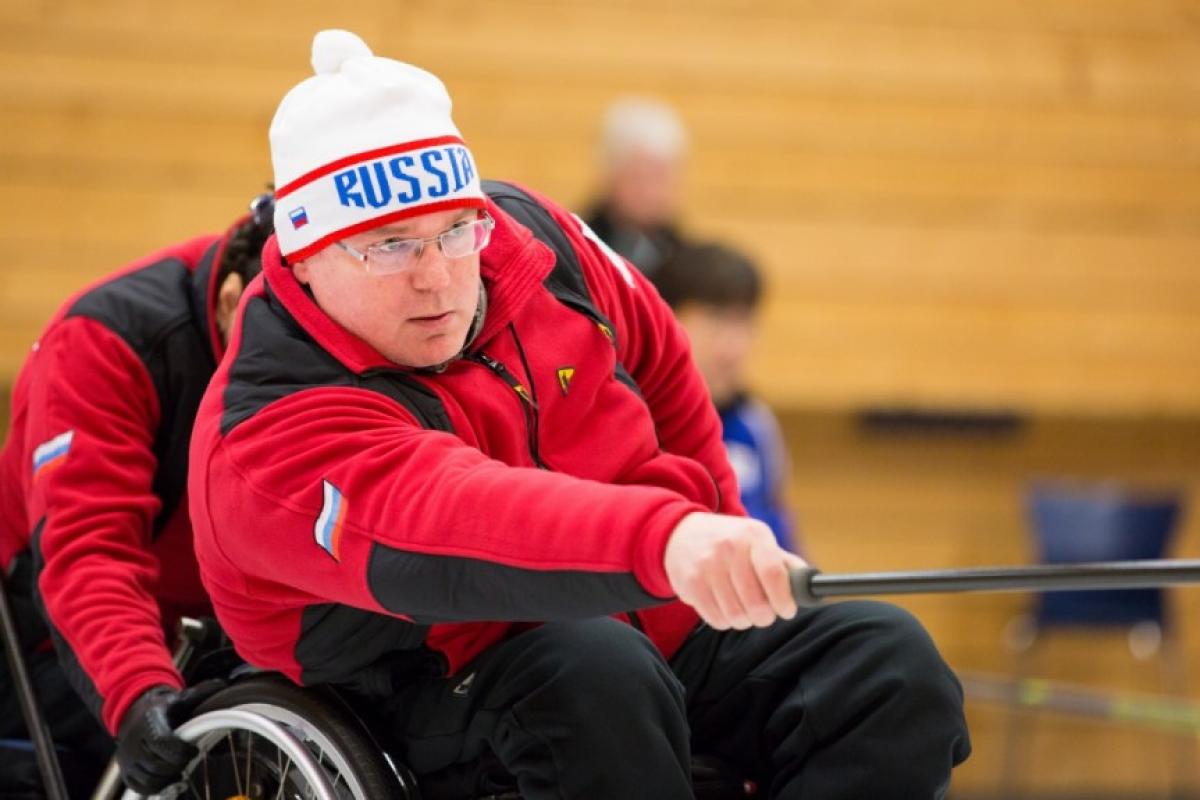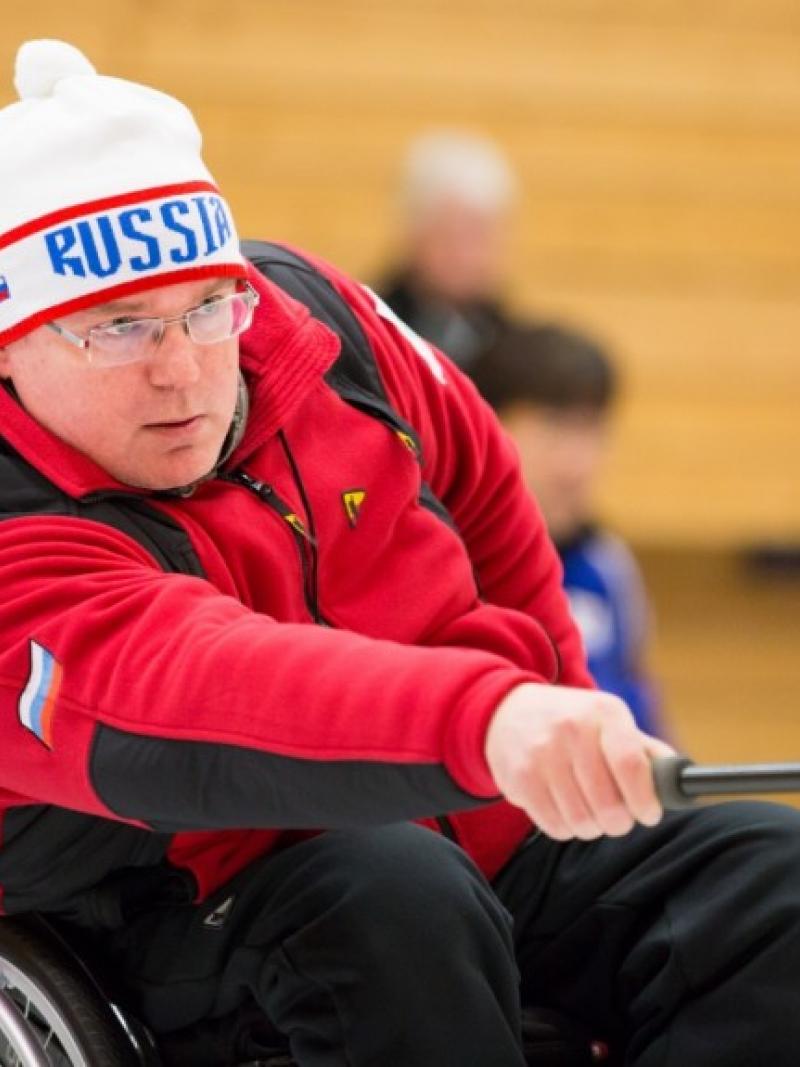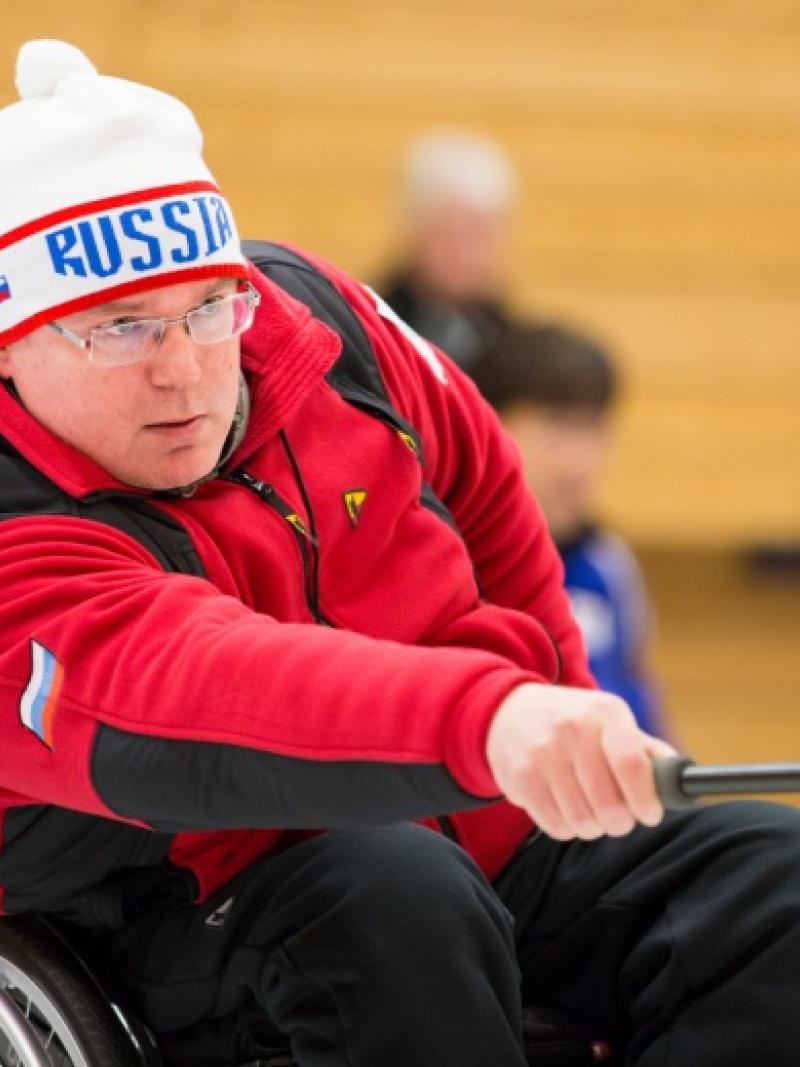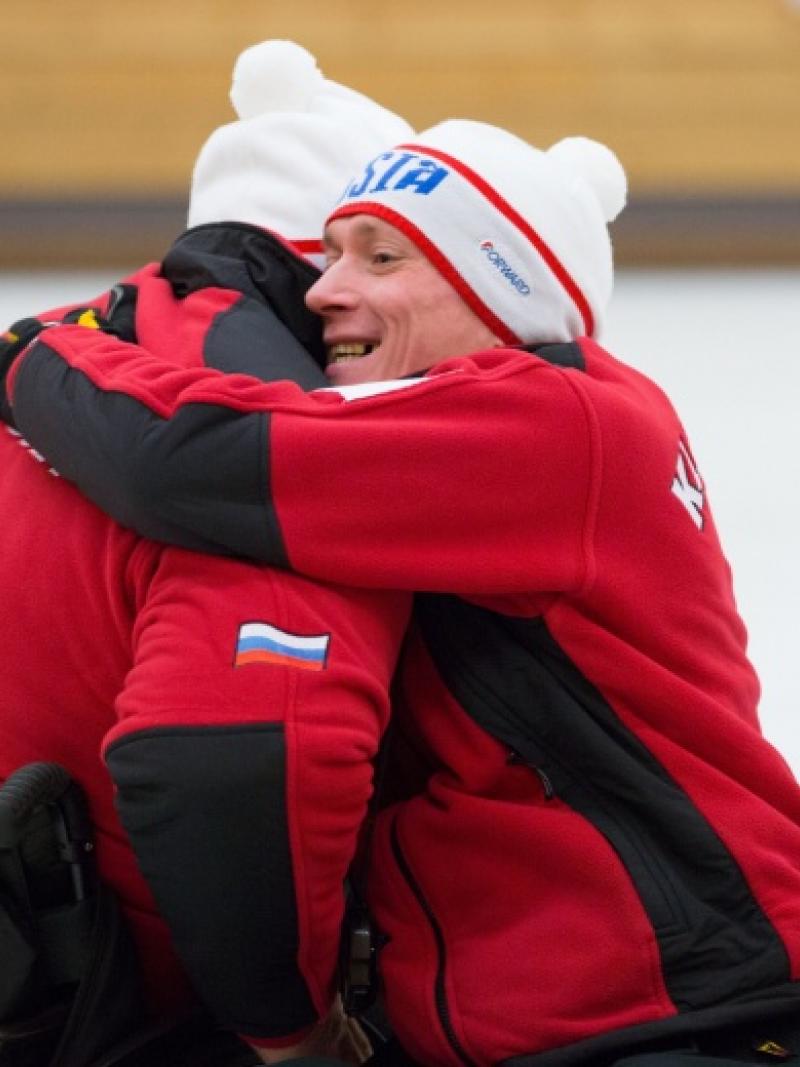World champion Smirnov still sees room for improvement
Despite three world titles, the Russian skip says his team should not slow down ahead of PyeongChang 2018. 06 May 2016
Russia's Andrey Smirnov at the 2016 World Wheelchair Curling Championships
“My biggest motivation in curling is that it doesn't let me live calm. Each time while practicing I am trying to make my throws perfect.”
The Russian wheelchair curling team may have won three world titles in the last four years but team skip Andrey Smirnov believes there is plenty of room for improvement ahead of the PyeongChang 2018 Paralympic Winter Games.
The 42-year-old won his latest world title in February, as Russia defeated Norway 7-4 in Lucerne, Switzerland.
“We should make fewer mistakes in tactics, as well as in throws and execution,” said Smirnov, looking ahead to future competitions.
“We have one and only goal for PyeongChang 2018 – to show a decent performance. And as silver medalists of the previous Games in [Sochi 2014], of course, now we want to have gold.
“We have intentionally moved towards this goal during the season. We practiced a lot, participated in tournaments and prepared ourselves for the main event of the year. I think by the time of the World Championships, our team gained the optimal psychological and physical form.”
“That was one of the main reasons of our success, in addition to that our massive desire to become the world champions again,” he said.
Smirnov has been part of the Russian wheelchair curling team since 2004 and began to skip in 2005. Until 2012, when he skipped Russia to their first world title in Chuncheon, South Korea, the best his team had finished was fourth in 2011 in Prague, Czech Republic.
Although Smirnov has identified Norway and 2016 World bronze medallists South Korea as a threat to his team’s Paralympic medal hopes, he believes there is an even great threat ahead at PyeongChang 2018.
“Our biggest opponents will be ourselves,” Smirnov said. “I said it before, that the main fight goes with yourself. If we could fight our mistakes, our fear and our nerves, we could win against any team.”
The national team is also comprised of Konstantin Kurokhtin playing third, Svetlana Pakhomova second, Marat Romanov playing lead, supported by alternate Alexander Shevchenko and their coach Anton Batugin.
For the most part, the core have remained since the 2012 World Championships.
Russia is no stranger to the international stage. They have competed in nine World Wheelchair Curling Championships between 2004 and 2016 and recent success has resulted in changes back home.
“Wheelchair curling is developing in our country,” Smirnov said. “There [were] be 12 teams from different regions participating in the nearest Russian Wheelchair curling Championship in [21-28] April. I would like to see wheelchair curling developing more in Russia.
“In 2003, in Yekaterinburg for the first time in Russia, a group of us tried wheelchair curling. At the time that was something new, unknown and not fully understandable. Later with time and practice I began to understand the sport of curling and fell in love with it.
“My biggest motivation in curling is that it doesn't let me live calm. Each time while practicing I am trying to make my throws perfect. Sometimes I achieve it, sometimes I do not. I will keep practicing and practicing until my every throw becomes perfect. Perfection has no limits.”







